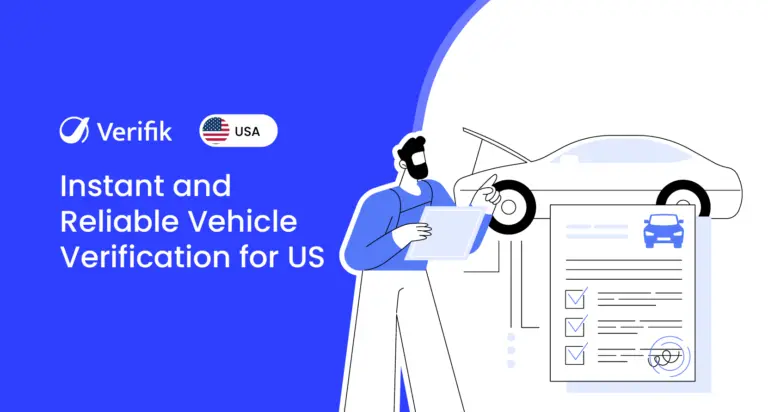In today’s business world, security and identity authentication are of paramount importance. With the increase in online transactions and the growing sophistication of cyberattacks. Businesses must ensure they have the right identity verification tools in place to protect their assets and take care of their users or customers.
As a result, companies have a growing need to implement effective identity verification solutions. Fortunately, there are some tools available to help organizations strengthen their defenses against digital fraud and phishing.
In this article, we will explore in detail the identity verification tools that every enterprise should consider protecting its assets and ensure the security of its operations.
We will show you various solutions. From data validation to facial recognition and beyond. We’ll examine how these technologies can strengthen security in the business environment. And also provide greater peace of mind to both business owners and their customers or clients.
Importance of Business Identity Verification
Enterprise identity verification is a critical component of any organization’s digital security strategy. Companies are constantly facing threats of identity theft, data theft and other forms of cyber fraud. This highlights the importance of having robust identity verification processes in place.
Identity verification not only helps ensure the security of transactions. It can also have a positive impact on a company’s reputation and regulatory compliance.
By prioritizing enterprise identity verification. Organizations can significantly reduce the risk of fraud, improve customer confidence and maintain the integrity of their online business operations.
Read also Why should you prioritize data validation in your company?
Identity Verification Tools: Traditional vs Modern
Traditional
Manual validation of identity documents: This method involves the manual review of identity documents such as identity cards, ID cards, passports, driver’s licenses, among others. This validation is time-consuming because operators must go source by source.
Authentication based on security questions: It is based on asking the user questions about personal information or background to verify his identity and validate additional data.
Modern
Automated document validation: Employs identity verification technology to confirm the authenticity of documents, such as passports or other identification documents, in seconds. This validation is performed by entering the document number and verification software. They compare the document information with public databases and trusted sources from around the world in a massive and fast way.
Facial recognition: Uses artificial intelligence algorithms to analyze and compare unique facial characteristics of the user to confirm the authenticity of individuals. In addition to cross-referencing this information with public databases to confirm their identity completely, quickly and accurately.
Implementing Identity Verification Tools: Considerations and Best Practices
Implementing identity verification tools is a critical step. But also necessary for any company looking to strengthen its security and protect against fraud.
However, it is important to approach this process carefully and consider several best practices to ensure a successful implementation.
First, it is critical to conduct a thorough assessment of your company’s specific needs and requirements. This is before selecting an identity verification tool. This includes considering the data you need to verify and the volume of queries your business requires.
Once the specific business needs have been identified. It is important to carefully research and evaluate the different options of identity verification technologies or tools available in the market. This includes considering factors such as:
The accuracy of the tool, the ease of integration with existing systems, and the level of support and customer service offered by the vendor.
In summary, implementing identity verification tools is a process that requires careful consideration and planning. By following these best practices, and choosing the right tool. Companies can strengthen their security and effectively protect themselves against fraud and other digital threats.
Verifik: The ultimate identity verification toolkit
The implementation of Verifik and our identity verification toolkit offers companies a comprehensive and effective solution to strengthen their security and protect against fraud. With our advanced verification technology. Verifik enables companies to validate users’ identities quickly and accurately, using advanced facial recognition technologies and document validation.
With our data validation tool, Database Screening, companies query more than 70 databases in 16 countries to verify the authenticity of users’ identities. In addition, it is also possible to validate vehicles and companies.
On the other hand, with our facial recognition tool. Enroll simplifies and speeds up the process of incorporating new users to the system, with facial biometrics technologies. Ensuring not only security, but also a better customer experience.
Did you already know about our identity verification toolkit? Learn more about Verifik here or contact us to give you the best solution for your company, creating secure digital ecosystems is possible with Verifik.co !
What is smartENROLL, and how does it help my business?
smartENROLL is Verifik’s comprehensive user onboarding solution that uses advanced identity verification technologies, such as facial recognition, liveness detection, and document scanning. It simplifies the onboarding process by automating tasks, validating data against local and international sources, and ensuring compliance with KYC/AML regulations. With its Passive Facial Liveness architecture, smartENROLL detects presentation attacks using just the same single-image selfie, reducing abandonment rates, preventing identity theft while enhancing user experience. It’s ideal for businesses in any industry looking to onboard users securely and efficiently.
How does smartACCESS improve platform security?
smartACCESS is a password-free login solution that combines Biometric Scanning and one-time passcode (OTP) technology to provide secure and seamless access to your platforms. It verifies facial features in real-time to prevent impersonation and deepfakes, ensuring only authorized users gain entry. By eliminating passwords, smartACCESS reduces the risk of data breaches and simplifies the login process, saving time for both users and businesses. You can customize login options (email, phone, or biometric) to suit your needs.
What is DataBase Screening, and why is it important?
DataBase Screening is Verifik’s service for validating user information against trusted local and international databases, such as Interpol, RUES, SIMIT, and government registries (e.g., CNPJ in Brazil, CUIT in Argentina). It helps businesses verify identities, check for criminal records, and ensure compliance with regulatory requirements. This service is critical for preventing fraud, improving database quality, and maintaining trust in industries like finance, events, and e-commerce.
How does smartENROLL support regulatory compliance?
smartENROLL is designed to help businesses meet legal and regulatory requirements, such as Know Your Customer (KYC) and Anti-Money Laundering (AML) standards. It validates user identities through biometric checks, document scanning, and data verification against multiple sources. By automating these processes, smartENROLL reduces manual errors and ensures your business stays compliant with industry regulations while protecting against fraud.
Can smartACCESS and smartENROLL be customized for my brand?
Yes, both offer advanced customization options. You can adapt the design by modifying colors, text, and messages in the interface and communications to align with your brand’s identity. Additionally, you can enable login options like email, phone, or facial recognition to suit your platform’s needs, ensuring a consistent and secure user experience.
What industries benefit from Verifik’s DataBase Screening?
DataBase Screening is valuable for industries requiring high levels of trust and compliance, including financial services, event management, e-commerce, and healthcare. For example, customers use us to screen people people or even vehicles, all done throught an API integration. This ensures secure operations and regulatory adherence across sectors.
How does smartENROLL prevent fraud during onboarding?
smartENROLL uses a combination of liveness detection, facial recognition, and document verification to ensure the authenticity of users. Additionally, it cross-references user data with trusted databases to detect identity theft or fraudulent documents, providing robust fraud prevention.
How does DataBase Screening integrate with other Verifik products?
DataBase Screening works seamlessly with smartENROLL and smartACCESS to provide end-to-end identity verification. For example, during onboarding with smartENROLL, govenment IDs data is extracted and cross checked with government or criminal records.












